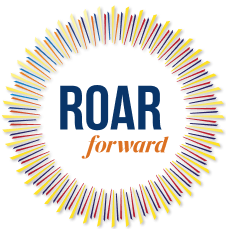In your early adult life, you were a Broadway actress. One of the roles was in the original cast of A Chorus Line. Tell us about that “first act” of your professional life.
Being cast in the London production of A Chorus Line was my “lucky break.” A Chorus Line, at the time, was the biggest hit on Broadway, so the chance to be a member of the group taking the show to London was a professional game-changer for me. The job identified me as one of the best dancers in the country, a status that promised to open doors I had been knocking on (to no avail) for several grueling years in New York. After spending years training and living at the Salvation Army home for girls, I was determined to join the highly competitive world of show-business, and with that job, I finally did.
In A Chorus Line, I worked with many of the most talented professionals in the business, who inspired me to continue giving myself over to creating art through storytelling. Through them, I learned how to navigate the demands of performing 8 shows a week, 52 weeks a year, which requires brute discipline and a level of endurance rarely demanded in other professions.
Third Girl from the Left is a memoir of your life on Broadway, particularly at the onset of the 1980s AIDS epidemic. Not only did you experience that in your professional life, your older brother Laughlin and his life partner the designer Perry Ellis both passed away during those years. Why did you decide to write this book at this point in your life?
During the ‘80s, I kept journals to document what I observed and record conversations because I instinctively knew that I was witnessing a significant historical event. All dancers need to keep a Plan B in mind because their careers are short, and my hope was that I would one day become a writer. My personal experiences gave me insight into the broader, more universal experience of the AIDS crisis, especially as my parents were similar to others who had little or no tolerance for gay children.
Although I wrote several drafts of the book, I did not seriously work at getting the book published until after my parents had died. I loved them and respected them but believed they and many of their generation made choices that I could not condone. Still, I saw no reason to hurt them in their old age, and equally important, I did not want what I knew to be their feelings to inhibit my writing. When dealing with such a sensitive, emotional subject, I wanted complete freedom to say what I wanted to say.
Lastly, COVID and recent attacks on the LGBTQ community have made my book increasingly relevant. Many of our current social/cultural conflicts have their roots in the 1980s.
As a first-time author, what was your process? What steps did you take to actually get the book written? What advice would you give to someone who believes they have an important story to tell and want to write about it?
I am an artist — a former dancer turned writer. No matter what I do, whether performing on Broadway, or planting a garden and making a home for my family, I seek to create something of beauty. I learned to practice creativity from three great teachers: Alvin Ailey, Tommy Tune, and Michael Bennett.
When I left Broadway and pivoted toward a writing career, I received the best education available, earning an MFA at Sarah Lawrence College. Education provides a background that you internalize and make your own, a process which comes from daily discipline and focus. To transition from the non-verbal space of dance to a medium entirely dependent on language, I had to carve out time and understand that I was taking a deep dive into a highly charged emotional story. Returning to times of trauma takes a toll, but I learned to rely on the advice of other writers and counselors along with the support of family and friends. Although writing is a solitary activity, one does not have to be alone throughout the process. In fact, one’s endurance increases with the right kind of support.
Most people with an important story have such a deep personal yearning that no one can stop them from telling it. It is that level of personal commitment that gave me the strength to not give up.

